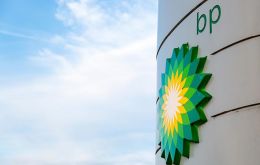MercoPress. South Atlantic News Agency
Energy & Oil
-
Friday, September 19th 2025 - 10:46 UTC
Noboa declares curfew in five of Ecuador's provinces

Ecuador's President Daniel Noboa has declared a curfew in five provinces and extended the state of emergency to an eighth province. These measures were adopted in response to planned protests over the elimination of a diesel subsidy, resulting in a rise from US$1.80 to US$2.80 per gallon, sparking outrage among transport workers and other social sectors.
-
Friday, September 19th 2025 - 09:21 UTC
Starmer and Trump sign key bilateral deal

US President Donald Trump and British Prime Minister Keir Starmer signed a major “technology prosperity deal” on Thursday, focused on artificial intelligence (AI) and civil nuclear energy. The agreement is expected to bring over US$205 billion in investment from US tech giants to the UK.
-
Wednesday, September 17th 2025 - 10:09 UTC
Venezuela and Iran pledge to strengthen nuclear cooperation

Venezuela's Deputy Science and Technology Minister Alberto Quintero met in Vienna with Atomic Energy Organization of Iran (AEOI) head Mohamad Eslami to discuss bilateral cooperation in the field of nuclear technology, as well as the expansion of collaboration in the production of radiopharmaceuticals and the development of nuclear education and research.
-
Monday, September 8th 2025 - 09:31 UTC
Massive blackout hits eastern Cuba

A massive blackout hit eastern Cuba Sunday, affecting millions of people across five provinces: Las Tunas, Granma, Holguín, Santiago de Cuba, and Guantánamo.
-
Tuesday, September 2nd 2025 - 10:24 UTC
Brazil reaches all-time high in oil and gas output

Brazil surpassed the barrier of 5 million barrels of oil and natural gas produced per day for the first time ever, the National Agency of Petroleum, Natural Gas and Biofuels (ANP), the regulatory agency for the oil and gas industry, announced Monday. The achievement was recorded in July this year, it was also explained.
-
Wednesday, August 20th 2025 - 08:10 UTC
Trump in the Falklands

By Barry Eichengreen (*) - US President Donald Trump’s trade war resembles nothing so much as UK Prime Minister Margaret Thatcher’s Falklands War in 1982: one side deploys massive force, and the other withdraws with its tail between its legs.
-
Tuesday, August 19th 2025 - 11:42 UTC
YPF legal saga: Irish court rules in favor of Argentina

An Irish court has ruled in favor of Argentina, rejecting a request by plaintiffs to enforce a US$16 billion New York judgment in that country. The plaintiffs in the YPF expropriation lawsuit sought to recognize and enforce New York Judge Loretta Preska's ruling in various foreign jurisdictions, namely England, France, Luxembourg, Australia, Canada, and Cyprus. However, the Irish court's decision was the first to deny this request.
-
Saturday, August 16th 2025 - 10:55 UTC
YPF case: NY Court of Appeals rules in favor of Argentina

The Second Circuit Court of Appeals in New York has suspended a lower court's order that required Argentina to transfer 51% of its shares of the state oil company YPF to a New York bank. This overruling of Judge Loretta Preska's Sept. 2023 order is a significant win for Buenos Aires, as it allows the South American country to appeal the $16 billion judgment without having to surrender a key state asset
-
Wednesday, August 6th 2025 - 10:17 UTC
BP announces major oil discovery off Brazil, while OPEC+ with Saudi Arabia leading, increase production

Britain’s BP oil and gas giant announced this week its biggest oil and gas discovery in 25 years off the coast of Brazil. This happens when the corporation is in the midst of a major overhaul, dropping the renewable energy strategy thrust, and returning to traditional hydrocarbons policy.
-
Tuesday, August 5th 2025 - 11:16 UTC
BP announces huge discovery off Rio de Janeiro

BP, the British oil and gas company, has announced its largest oil and gas discovery in 25 years, in the Boomerang Field, an area over 300 square kilometers within Brazil's Santos Basin, roughly 404 kilometers off the coast of Rio de Janeiro.
